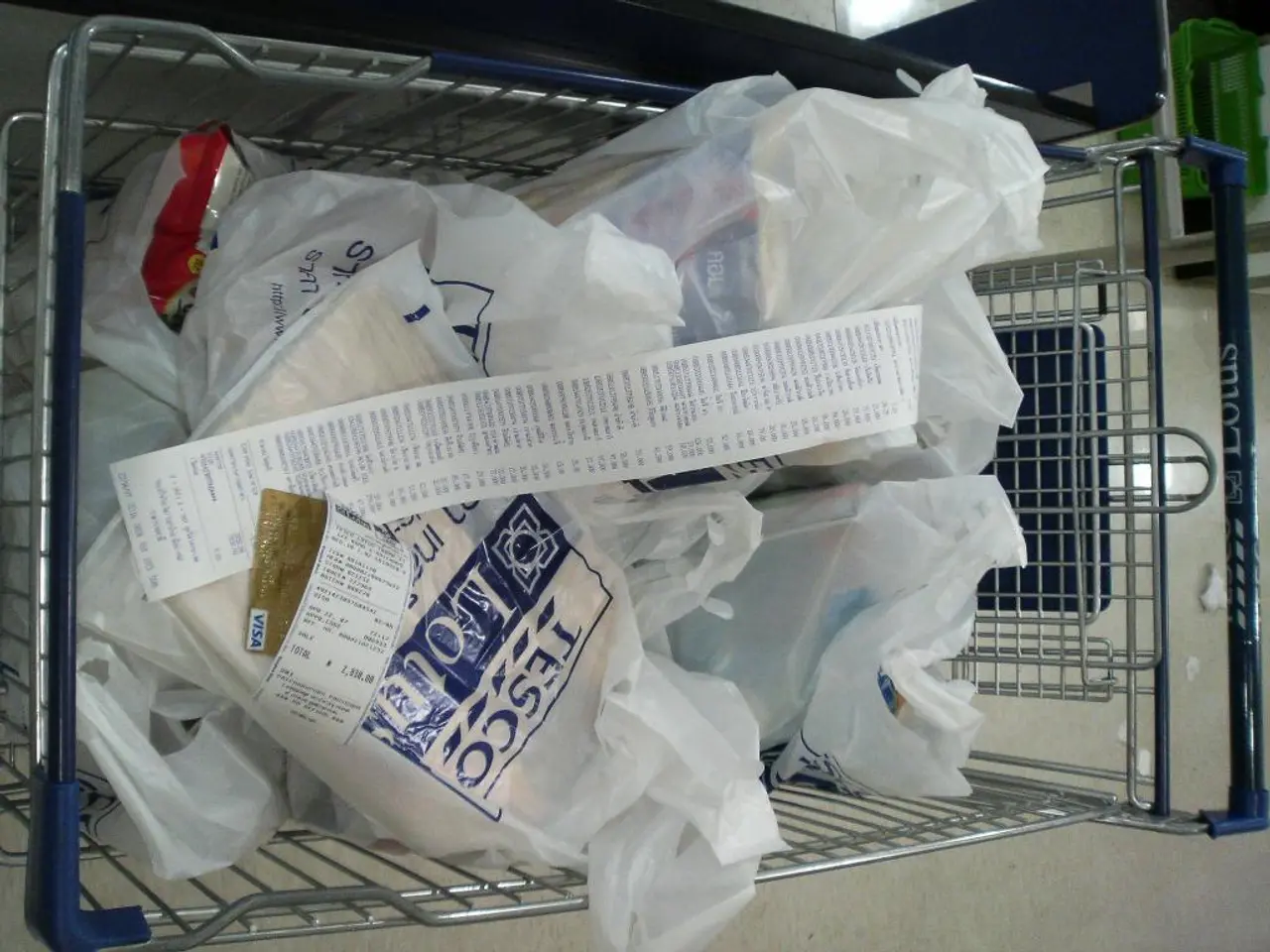Impact of Tariffs on Consumers Minimally Detected, According to Study
=================================================================================================
In a recent study by Resonate, an AI-powered consumer intelligence firm, the effects of tariffs and economic pressure on consumer behaviour in the United States have been analysed. Here's a summary of the key findings:
- Limited Impact of Tariffs: A majority of consumers (62%) report that they rarely or never find the items they want unavailable due to tariffs. This suggests that the immediate effects of tariffs on consumer access to goods are not yet strongly felt.
- Resilient Spending Habits: Despite economic pressure, nearly half (49%) of consumers maintain their spending levels, and 30% have made no changes to their spending habits to accommodate higher prices. This indicates resilience in consumer spending against economic headwinds.
- Fading Financial Confidence: While 47% of consumers do not plan to delay or cancel financial decisions, confidence in personal finances is waning, with 23% expecting to be worse off financially in the coming months. Additionally, 70% of consumers are in debt, with 16% struggling to meet debt obligations.
- Adjustments in Non-Essential Spending: Consumers are prepared to make adjustments in non-essential spending if economic conditions worsen. Changes include stopping dining out or takeout (37%), cutting vacation and travel spending (26%), halting entertainment and events purchases (24%), and reducing luxury purchases (24%).
- Economic Concerns and Blame: Consumers are increasingly concerned about the economy, with 22% worried about overall economic conditions—a decrease from previous months—and 45.5% believing the economy will never return to normal. There is also a split in attributing inflation causes, with 39% blaming price gouging and 37% blaming excessive government spending.
In a statement, Bryan Gernert, Resonate's CEO, emphasised that tariffs have the potential to cause consumer behaviours to shift overnight. He also highlighted that the brands that will succeed will not just be focused on cutting costs, but will drive growth by understanding why people buy and acting on it in real time, keeping customers loyal even in uncertain times.
As the economy continues to evolve, it's clear that consumers are prepared to adapt their spending habits accordingly. Brands that can anticipate and respond to these changes will be well-positioned to thrive in the current economic climate.
[1] Resonate Consumer Trends Report, 2022 [2] July Consumer Price Index, 2022 [3] Survey of 55% of consumers not planning to travel for fall or winter holidays, 2022 [4] Data on 70% of consumers burdened by debt and 16% struggling to meet obligations, 2022 [5] Survey on economic concerns and blame, 2022
- Despite the resilience in spending levels, a significant number of consumers (23%) express concerns about their financial future, indicating potential challenges in personal finance.
- As consumers are willing to make adjustments in non-essential spending, smart brands may choose to focus on understanding consumer behavior and driving growth, rather than solely on cost-cutting measures, to maintain customer loyalty in financially uncertain times.




